Ditapis dengan

Social System and Legal Process: Theory, Comparative Perspective and Special …
- Edisi
- -
- ISBN/ISSN
- 0875893643
- Deskripsi Fisik
- xv + 351 pg.; 23,5 cm.
- Judul Seri
- -
- No. Panggil
- 300 SOC s
- Edisi
- -
- ISBN/ISSN
- 0875893643
- Deskripsi Fisik
- xv + 351 pg.; 23,5 cm.
- Judul Seri
- -
- No. Panggil
- 300 SOC s

Essays In Social Theory and Social Organisation
- Edisi
- -
- ISBN/ISSN
- -
- Deskripsi Fisik
- vi + 242 pg.; 23 cm.
- Judul Seri
- -
- No. Panggil
- 302.12 ENG e
- Edisi
- -
- ISBN/ISSN
- -
- Deskripsi Fisik
- vi + 242 pg.; 23 cm.
- Judul Seri
- -
- No. Panggil
- 302.12 ENG e
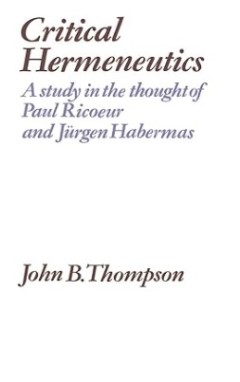
Critical Hermeneutics : A Study in the Thought of Paul Ricoeur and Jurgen Hab…
This is a study in the philosophy of social science. It takes the form of a comparative critique of three contemporary approaches: ordinary language philosophy, hermeneutics and critical theory, represented here respectively by Ludwig Wittgenstein, Paul Ricoeur and Jürgen Habermas. Part I is devoted to an exposition of these authors' views and of the traditions to which they belong. Its unifyi…
- Edisi
- First Published
- ISBN/ISSN
- 0-521-23932-X
- Deskripsi Fisik
- ix + 257 hlm.; 22,5 cm.
- Judul Seri
- -
- No. Panggil
- 300.1 THO c
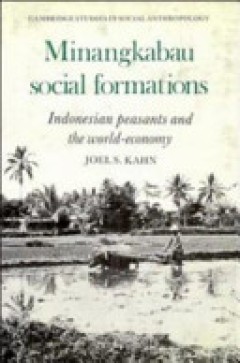
Minangkabau Social Formations: Indonesian Peasants and the WOrld-Economy
In this anthropological investigation of the nature of an underdeveloped peasant economy, Joel S. Kahn attempts to develop the insights generated by Marxist theorists, by means of a concrete case study of a peasant village in the Indonesian province of West Sumatra. He accounts for the specific features of this regional economy, and, at the same time, examines the implications for it of the cen…
- Edisi
- First Published
- ISBN/ISSN
- 0-521-22993-6
- Deskripsi Fisik
- xvi + 228 pgs.;
- Judul Seri
- -
- No. Panggil
- 301.40095981 KAH m

The God Practice of Social Research
- Edisi
- Third Edition
- ISBN/ISSN
- 0-534-01255-8
- Deskripsi Fisik
- xxiv + 551 pgs.; 24 cm.
- Judul Seri
- -
- No. Panggil
- 300.72 BAB p
- Edisi
- Third Edition
- ISBN/ISSN
- 0-534-01255-8
- Deskripsi Fisik
- xxiv + 551 pgs.; 24 cm.
- Judul Seri
- -
- No. Panggil
- 300.72 BAB p
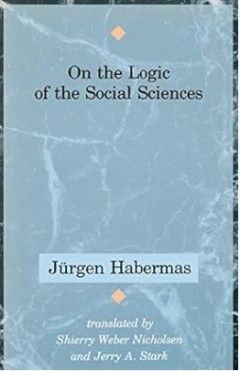
On the Logic of the Social Sciences
In this wide-ranging work, now available in paperback, Habermas presents his views on the nature of the social sciences and their distinctive methodology and concerns. He examines, among other things, the traditional division between the natural sciences and the social sciences; the characteristics of social action and the implications of theories of language for social enquiry; and the nature,…
- Edisi
- First Published
- ISBN/ISSN
- 0-262-08177-8
- Deskripsi Fisik
- xv + 219 pgs.; 21 cm.
- Judul Seri
- -
- No. Panggil
- 300.72 HAB l
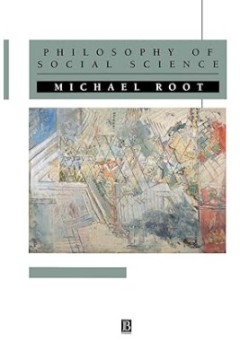
Philosophy of Social Science
This book is a critical introduction to the philosophy of social science. While most social scientists maintain that the social sciences should stand free of politics, this book argues that they should be politically partisan. Root offers a clear description and provocative criticism of many of the methods and ideals that guide research and teaching in the social sciences.
- Edisi
- First Published
- ISBN/ISSN
- 0-631-19042-2
- Deskripsi Fisik
- xvii + 269 pgs.; 23 cm.
- Judul Seri
- -
- No. Panggil
- 300.1 ROO p
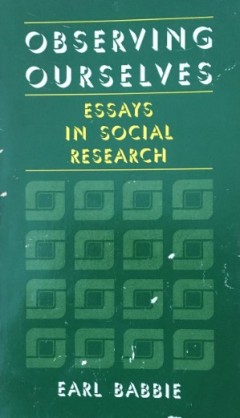
Observing Ourselves : Essays in Social Research
- Edisi
- First Published
- ISBN/ISSN
- 0-534-06174-5
- Deskripsi Fisik
- x + 189 pgs.; 18 cm.
- Judul Seri
- -
- No. Panggil
- 300.72 BAB o
- Edisi
- First Published
- ISBN/ISSN
- 0-534-06174-5
- Deskripsi Fisik
- x + 189 pgs.; 18 cm.
- Judul Seri
- -
- No. Panggil
- 300.72 BAB o
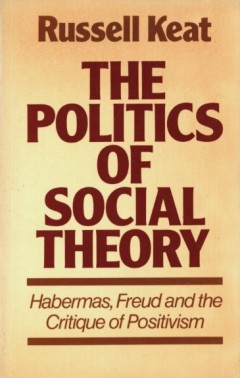
The Politics of Social Theory : Habermas, Freud and the Critique of Positivism
- Edisi
- First Published
- ISBN/ISSN
- 0-226-42875-3
- Deskripsi Fisik
- x + 245 pgs.; 21,5 cm.
- Judul Seri
- -
- No. Panggil
- 300.1 KEA p
- Edisi
- First Published
- ISBN/ISSN
- 0-226-42875-3
- Deskripsi Fisik
- x + 245 pgs.; 21,5 cm.
- Judul Seri
- -
- No. Panggil
- 300.1 KEA p
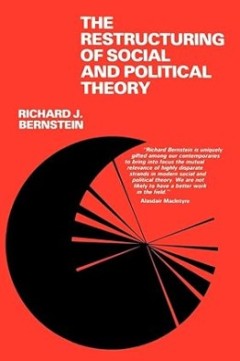
The Restructuring of Social and Political Theory
- Edisi
- First Published
- ISBN/ISSN
- 0-8122-7742-2
- Deskripsi Fisik
- xxiv + 286 pgs.; 23,5 cm.
- Judul Seri
- -
- No. Panggil
- 300.1 BER r
- Edisi
- First Published
- ISBN/ISSN
- 0-8122-7742-2
- Deskripsi Fisik
- xxiv + 286 pgs.; 23,5 cm.
- Judul Seri
- -
- No. Panggil
- 300.1 BER r
 Karya Umum
Karya Umum  Filsafat
Filsafat  Agama
Agama  Ilmu-ilmu Sosial
Ilmu-ilmu Sosial  Bahasa
Bahasa  Ilmu-ilmu Murni
Ilmu-ilmu Murni  Ilmu-ilmu Terapan
Ilmu-ilmu Terapan  Kesenian, Hiburan, dan Olahraga
Kesenian, Hiburan, dan Olahraga  Kesusastraan
Kesusastraan  Geografi dan Sejarah
Geografi dan Sejarah